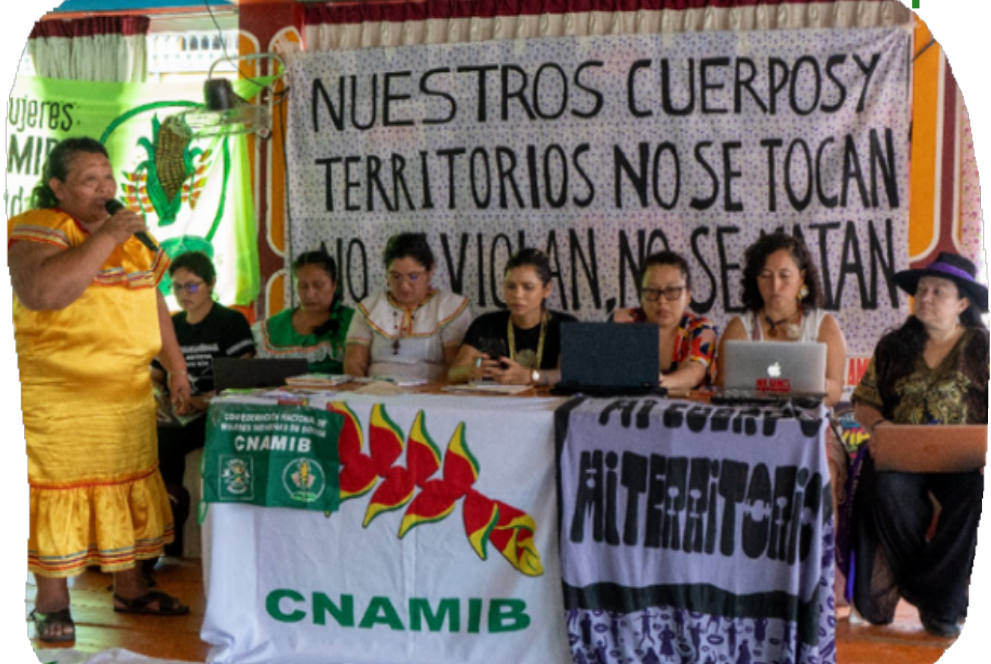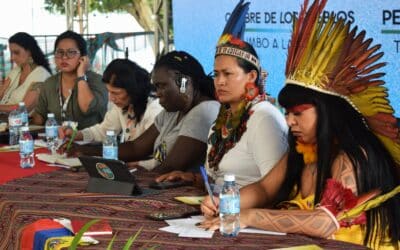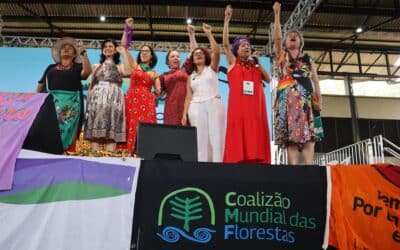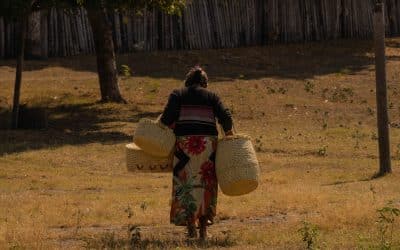
In June 2024, the Green Livelihood Alliance’s (GLA) Gender Hub hosted another Inclusive Forest Community of Practice (InFoCP) session, focusing on preparations for the Convention on Biological Diversity (CBD) COP16 in Cali, Colombia. This session provided a platform for GLA members from Latin America to share their expectations and demands regarding women’s roles in global biodiversity negotiations.
Valentina Figuera Martínez from the Global Forest Coalition (GFC) opened the session by highlighting the significant achievements of the CBD Women’s Caucus (CBD-WC). She discussed milestones such as the adoption of the first Gender Plan of Action in 2008 and the historic gender stand-alone target 23 within the 2022 Kunming-Montreal Global Biodiversity Framework. The CBD-WC remains dedicated to gender mainstreaming across the Convention through advocacy, capacity building, knowledge production, outreach, and community-building efforts.
Public Forum on Women, Territories, and Biodiversity
GLA Colombia members—including Censat Agua Viva, FCDS, Gaia Amazonas, Tropenbos Colombia, and gender consultant Catalina Oviedo—reflected on a recent public forum they organized on women, territories, and biodiversity. This event brought together 35 diverse women and an LGBTQI+ leader for impactful discussions about the vital role women play in safeguarding biodiversity.
In the afternoon, the public forum featured representatives from various government ministries who engaged with participants on issues of territorial rights. The women presented their synthesized recommendations, which included:
- Recognizing Indigenous knowledge systems and cultural traditions as integral to biodiversity.
- Urgently respecting collective and individual rights, including participation, land, territory, self-governance, and organizational structures.
- Protecting women environmental leaders from threats and violence.
Next steps include disseminating a recommendations document to stakeholders, establishing a monitoring framework to assess implementation, and preparing for a National Women’s Dialogue ahead of COP16.
Insights from the Pan-Amazon Social Forum (FOSPA) XI
Marlene Soriano from IBIF Bolivia shared insights from the recent Pan-Amazon Social Forum (FOSPA) XI, which gathered over 1,200 participants to discuss critical themes. For the first time, a thematic axis on Women’s Resistance emerged, attracting significant participation from both Indigenous, campesina and non-Indigenous women’s groups. Marlene noted that Indigenous women are increasingly taking leadership roles within this movement.
The women at FOSPA collectively developed a powerful declaration, emphasizing their identities as political actors and the need to confront multiple oppressions, including patriarchy and colonialism. Their declaration outlined urgent denunciations of the invisibility of women’s struggles, demands for rights and justice, and proposals for a fair and gender-just energy transition.
Engaging in International Policy Spaces
Kiyomi Nagumo, a gender consultant from Bolivia, provided insights from her participation in the recent CBD Subsidiary Body on Implementation (SBI) meetings. She expressed concerns that the negotiations did not adequately address the impacts of biodiversity loss on women and Indigenous peoples. Kiyomi highlighted the necessity of connecting local, regional, and international advocacy efforts to strengthen collective action.
Juliana Sanchez from Gaia Amazonas concluded the session by emphasizing that women’s participation in international policy spaces must be tied to their individual and collective rights. She noted the interconnections between violence against women and violence against territories, advocating for more effective participation strategies that prioritize well-being and the establishment of parallel spaces for dialogue.
The GLA Gender Hub’s efforts showcase the crucial intersection of gender equity and biodiversity, underscoring the need for inclusive policies that recognize and elevate the voices of women in these critical global discussions. As we prepare for COP16, the collective knowledge and experiences shared in this session will undoubtedly influence ongoing advocacy for gender justice in biodiversity negotiations.



